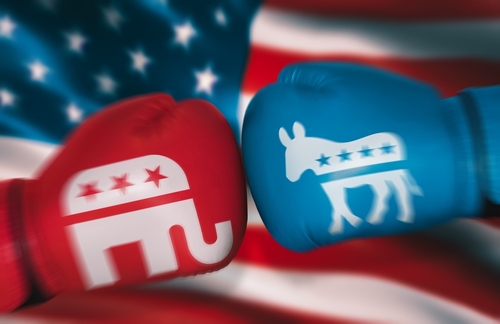Tensions rise as Republicans and Democrats clash over a proposal that could redefine free speech boundaries and donor transparency. With implications for judicial independence and advocacy influence, this debate displays deep ideological rifts. At the heart of the matter: whether requiring donor disclosure in legal briefs infringes on First Amendment rights or defends against unregulated judicial lobbying. Is transparency an asset or a detriment to our democracy?
The Debate Over Donor Disclosure
The proposal in question requires contributors to friend-of-the-court briefs to disclose their identities. Democrats, led by Sen. Sheldon Whitehouse and Rep. Hank Johnson, emphasize the need for transparency to reveal “powerful special interest groups” lobbying the courts. Republicans counter, asserting these measures infringe upon First Amendment rights and could suppress free speech, warning that such disclosures could lead to harassment of speakers with unpopular viewpoints.
The clash stems from 2019 legislation mandating disclosure of amicus brief contributors, which some argue sets a troubling precedent. Critics, including GOP senators like Mitch McConnell, describe the proposal as a partisan tactic. Concern lies in the belief that it compromises the judiciary’s independence, with Republicans dismissing fears of influence by groups such as the Sierra Club as exaggerated.
Judiciary Independence at Stake?
Proponents of the rule changes argue they guard against an “orchestrated campaign of judicial lobbying by an amicus flotilla.” Opposition, however, sees the proposal as an overreach, trivializing concerns over judicial independence as less pressing than public interest priorities. Judicial impartiality must remain intact, contends the GOP, viewing mandatory disclosure as undermining the core civic right to petition the courts on public matters.
In defending the judiciary’s autonomy, notable figures, including Andrew Straw, align with McConnell to contest the proposed court rule adjustments. Echoing this sentiment, organizations like the National Taxpayers Union Foundation argue these changes do not satisfy the meticulous First Amendment scrutiny standards historically upheld by the Supreme Court.
An Evolving Battlefield
Critics label the advisory committee’s justifications as speculative, lacking substantial evidence to warrant the disruptive rule changes. Groups such as the Washington Legal Foundation question the criteria for disclosure set by the advisory committee, suggesting more discussion is needed to balance transparency and the preservation of free speech.
“Even liberals understand the danger proposed by disclosure” – SCOTUS transparency group Fix the Court
The debate’s resolution remains uncertain, underscoring a broader ideological divide. As lawmakers and advocacies continue to argue over the role and power of judicial influence, Americans watch intently, evaluating whether transparency and First Amendment rights can harmoniously coexist or if they are irreconcilable forces in shaping policy decisions.
Sources:
Arguments against disclosing nonprofit donor information to governments – Ballotpedia

